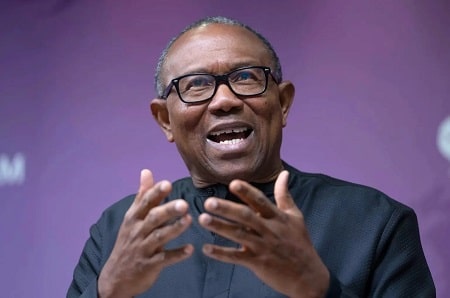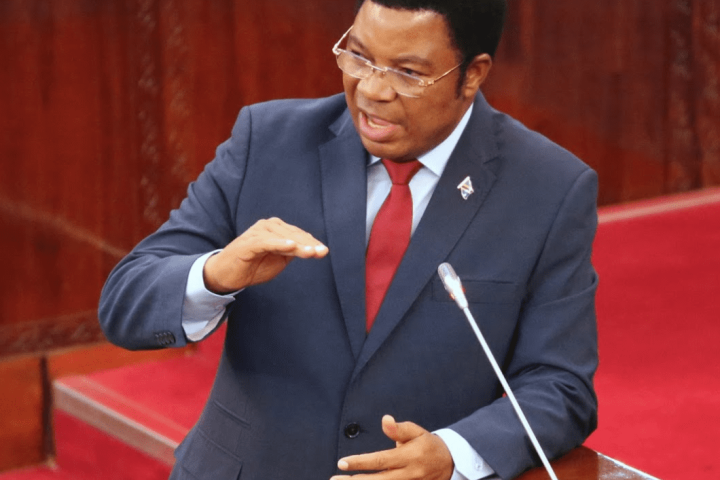Nigeria spent $28.65 billion on foreign education in 10 years (from 2010 to 2020), with Personal Transport Allowance totalling $58.7 billion. This is according to a report from the Office of the Deputy Speaker, House of Representatives, citing the Central Bank of Nigeria.
In a statement, the office stressed that redirecting a portion of the funds to ventures within the country, could have significantly strengthened the naira, adding that promoting transnational education in the country “is pivotal for boosting the economy” and alleviating forex pressure.
Join our WhatsApp ChannelThe statement also noted that offering scholarships and fostering partnerships for in-country foreign education delivery could help Nigeria attract more transnational education providers, solidifying its position as Africa’s largest market for international education.
Prime Business Africa reports that it also noted that collaborative efforts would play a vital role in improving the transnational education landscape in Nigeria.
“There is an urgent need for a legislative framework to create policies that will enable the Federal Government develop a sustainable transnational education sector.
“These policies would facilitate the transformation of six universities into transnational tertiary educational institutions, boosting the country’s Gross Domestic Product through education exports, and establishing a roadmap for long-term market growth,” the report added.
According to the statement, safeguarding Nigerian students abroad is paramount, with a task force focusing on qualification recognition and insurance schemes.
READ ALSO: CBN Uncovers Forex Abuses, Vows Stringent Actions
Championing this policy effort is a senior legislative aide in the Office of the Deputy Speaker, Osobase Ehizua, whose commitment to robust legislative frameworks aligns with the vision of the Deputy Speaker, Benjamin Kalu, in supporting President Bola Tinubu’s Renewed Hope Agenda at the legislative level.
Collaborating with educational and diplomatic bodies, Ehizua is spearheading the legislative framework for the establishment of International Education Commission, emphasising excellence and collaboration.
“Efforts under Ehizua’s leadership aim to create a legislative roadmap for transnational education in the country. The goal is to fortify the education sector, enhance bilateral relations and leverage education as an exportable resource for economic growth. The proposed International Education Commission Bill seeks to foster peace, justice and the safety of Nigerian students abroad.
“Education, as an exportable service, holds immense potential for Nigeria. So, embracing transnational education enables Nigeria to expand international education access and strengthen collaborations with global partners. This strategic move goes beyond academics, fostering cultural exchange, knowledge sharing and skills development,” the statement noted.
The benefits of transnational education, it added, are far-reaching, enhancing the educational landscape by introducing co-funded scholarship programmes, student support services, and establishment of foreign universities in Nigeria.
“This initiative not only enriches the local educational ecosystem but also aligns with global trends where countries like the US and UK benefit significantly from education exports yearly.”
As Nigeria experiences a surge in higher education interest, partnerships with key players such as China, UK, Canada, US and Australia are crucial to meeting the growing demand for quality education.
“In the post-pandemic world, focusing on education as a tradable service not only drives economic growth but also fosters cross-border relationships, emphasising Nigeria’s commitment to global partnerships and excellence in research and teaching.
“The present geopolitical, economic and policy contexts in Nigeria have posed challenges for international education activities, with a focus on other sectors in the past,” Ehizua noted.
He said Nigeria’s higher education providers found it difficult to establish collaborative research activities with foreign education providers.
“Despite the misconceptions about funding, there is significant interest from foreign universities, investors and organisations in partnering Nigeria’s education sector players in the right environment.
“Nigeria’s education sector offers vast opportunities, supported by a vibrant youth population making global impact. With over 90 million people under 18 years of age, Nigeria ranks as the world’s third-largest youth population, trailing only India and China,” he added.
Nigeria’s international education activities have negatively influenced the economy, leading to substantial forex outflows for tuition fees and PTAs taking a huge portion of the CBN’s subsidies on forex and contributing negatively to the performance of the naira.
Victor Ezeja is a passionate journalist with seven years of experience writing on economy, politics and energy. He holds a Master's degree in Mass Communication.


















Follow Us